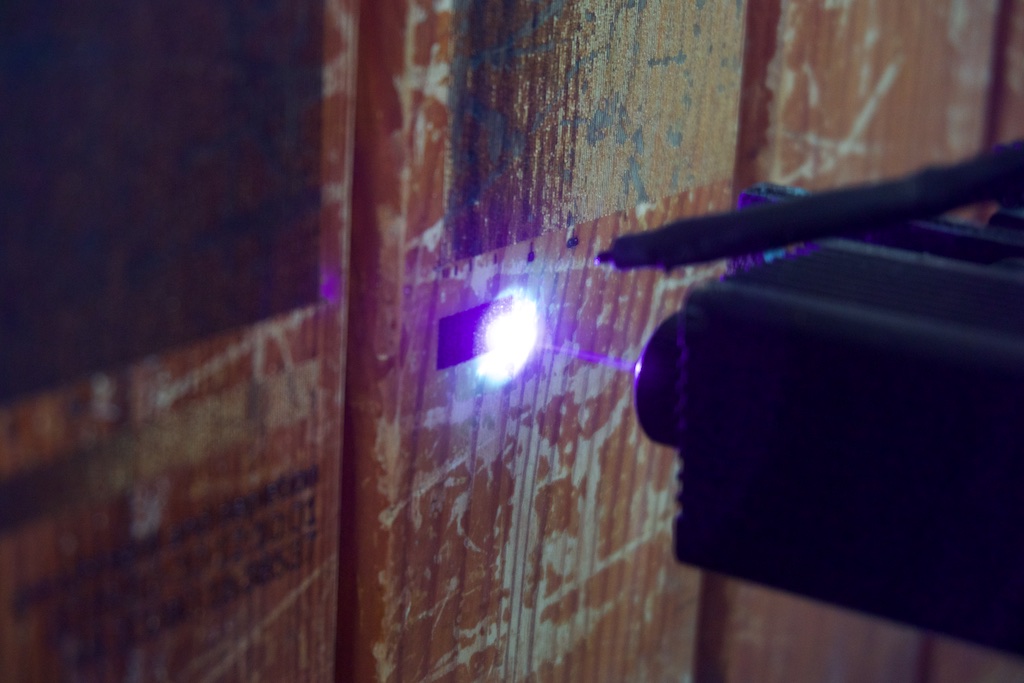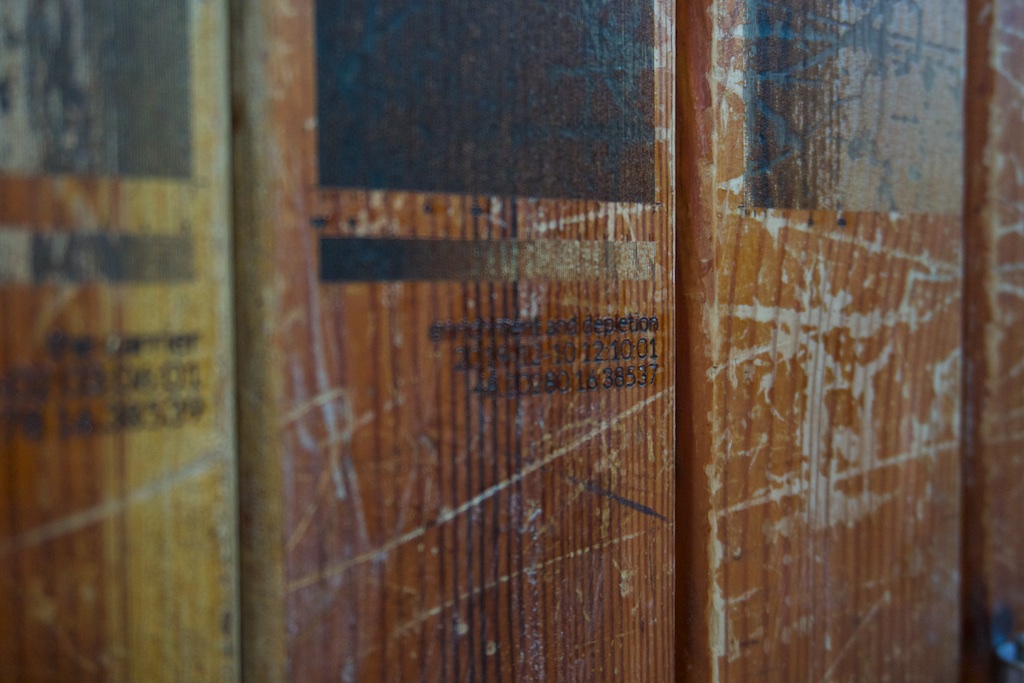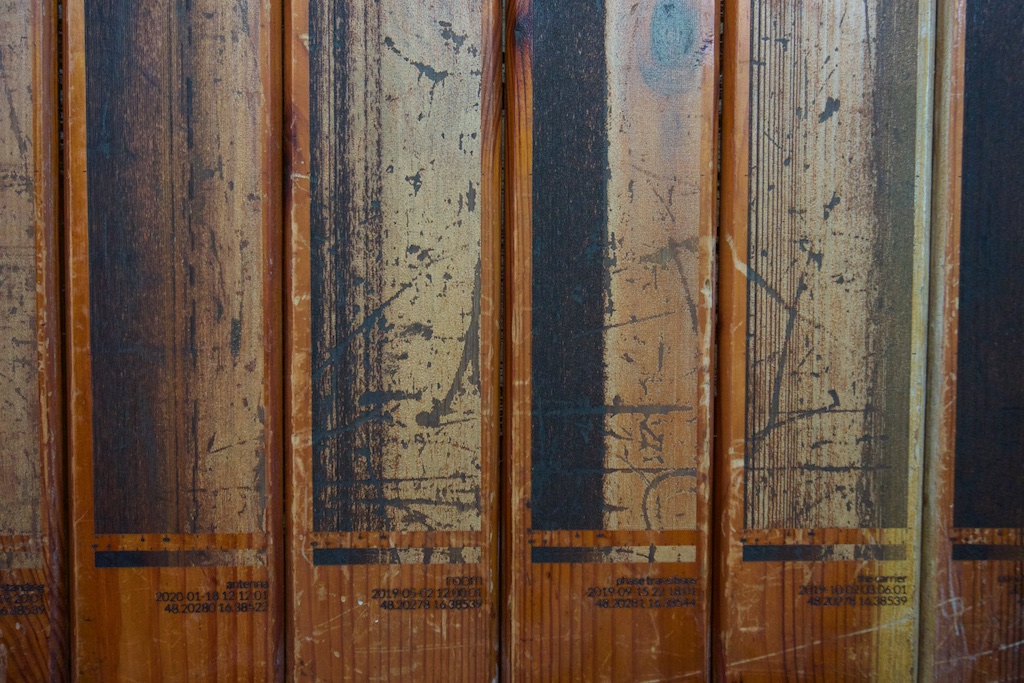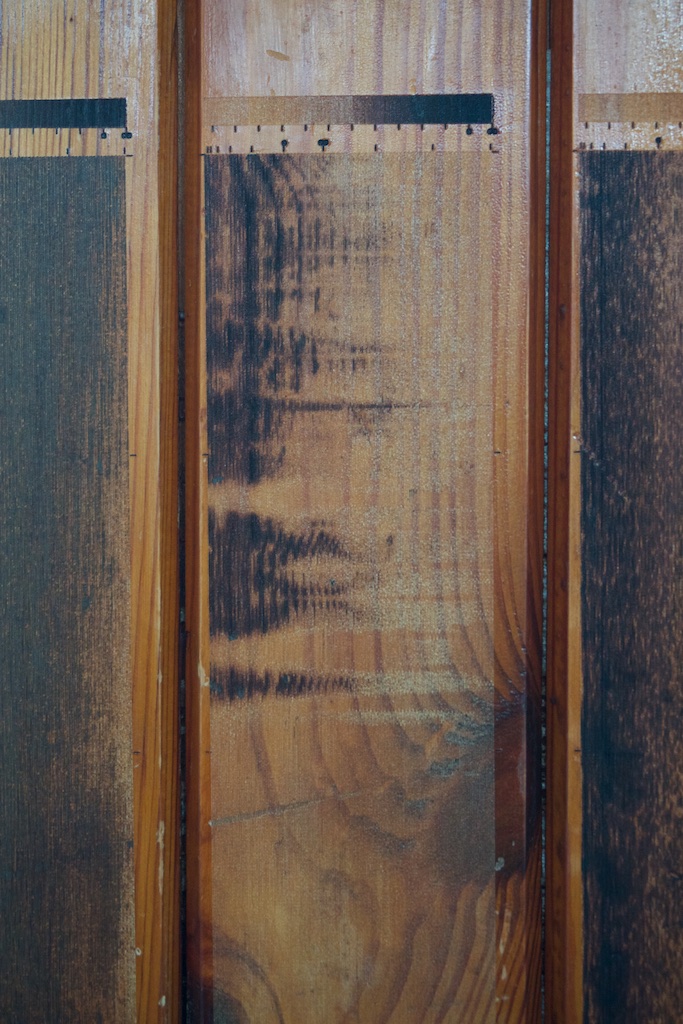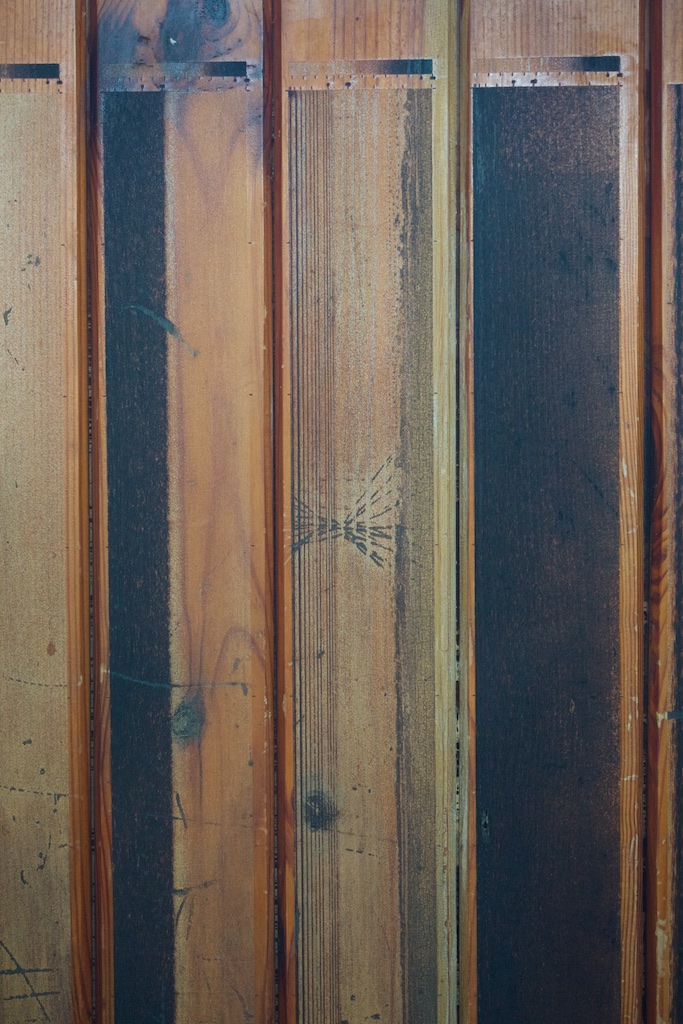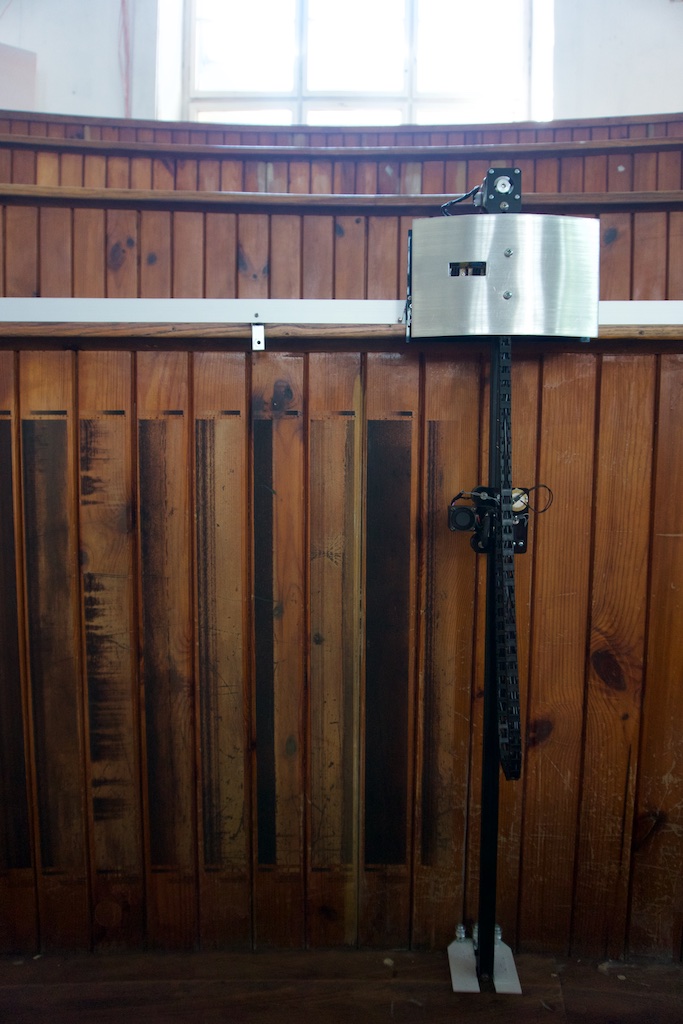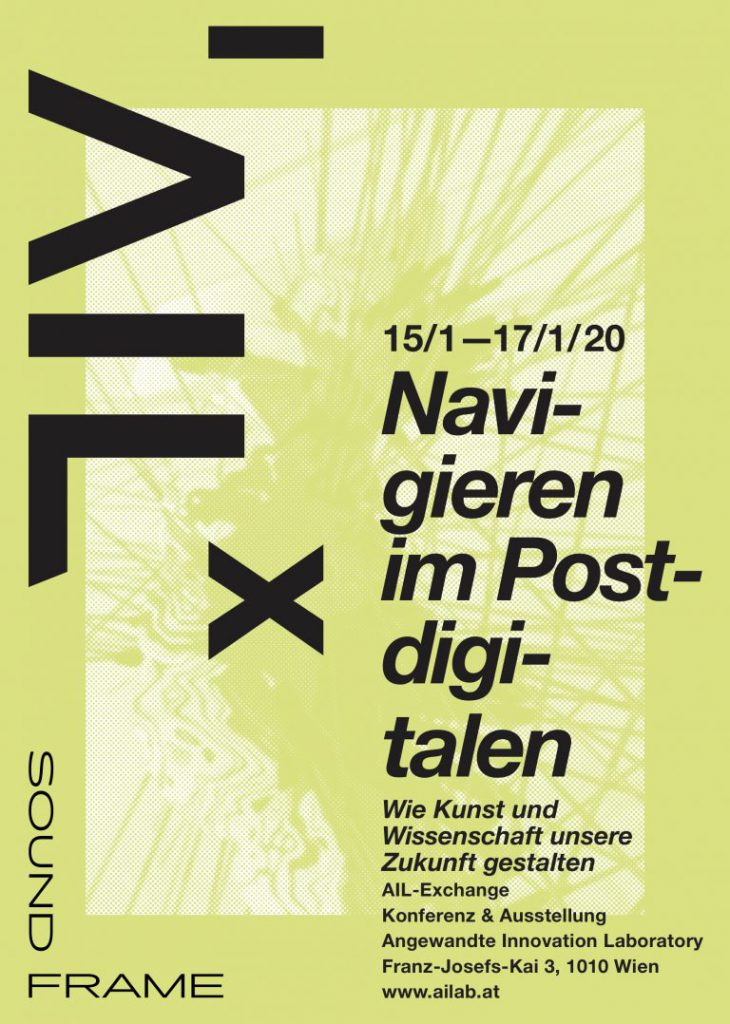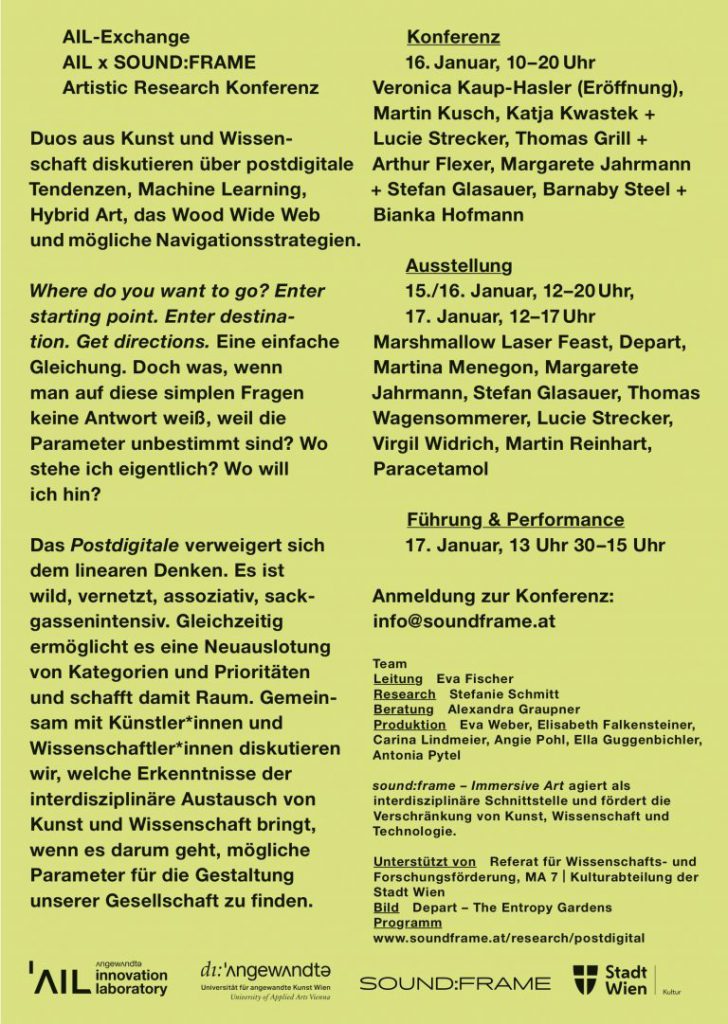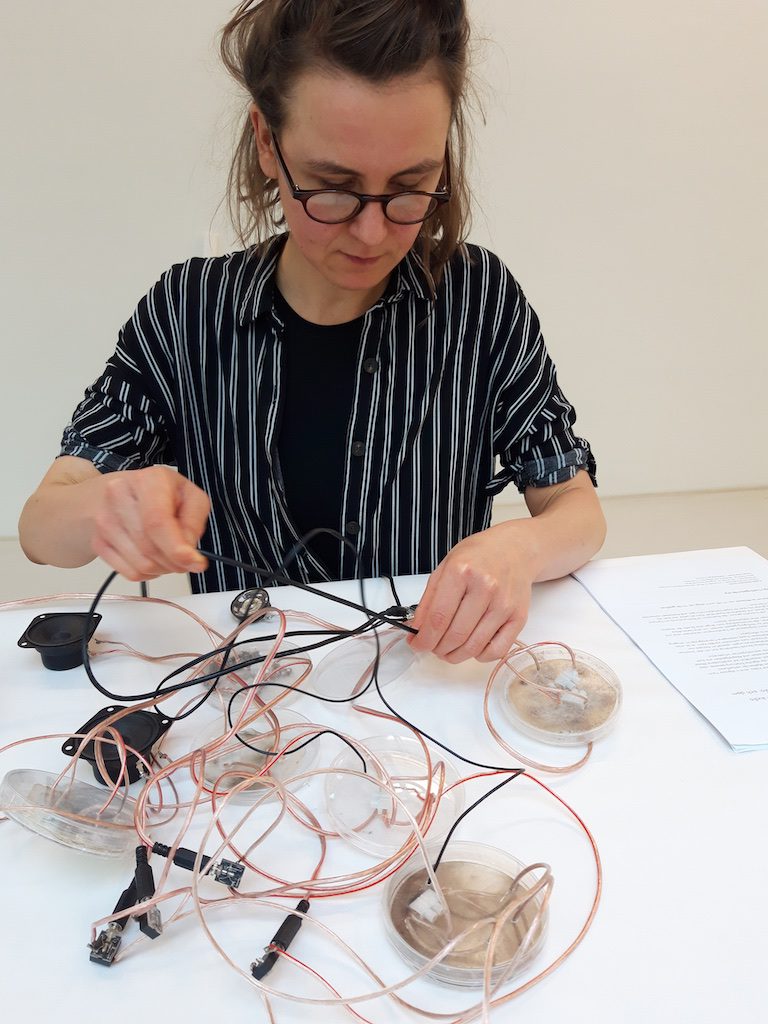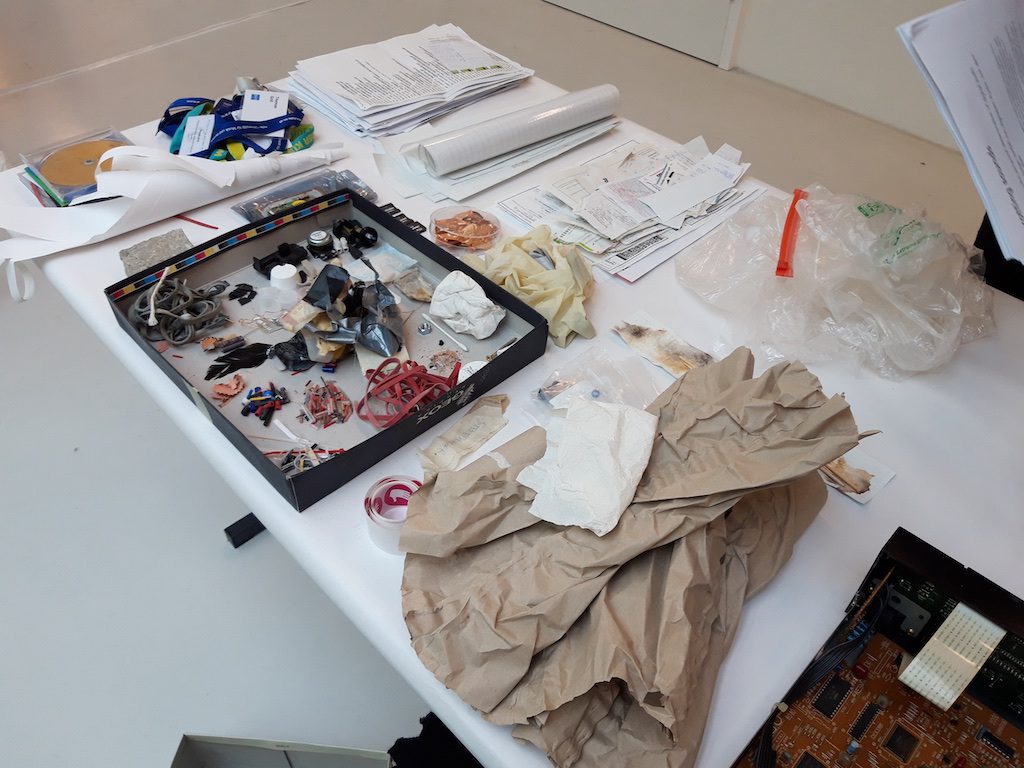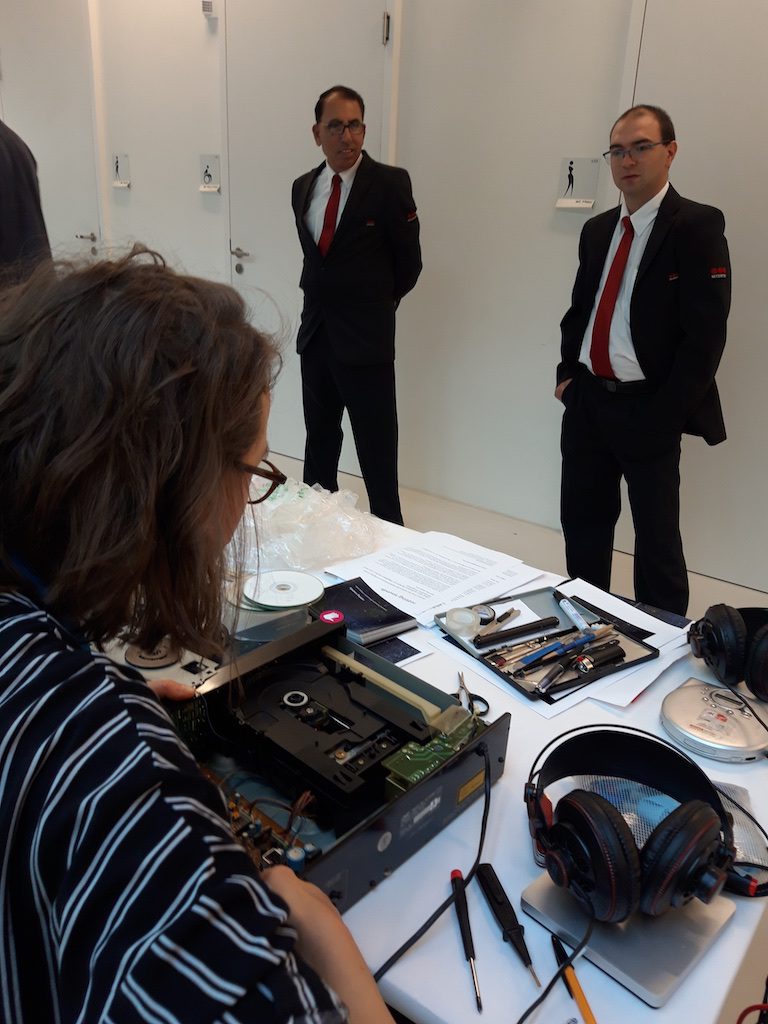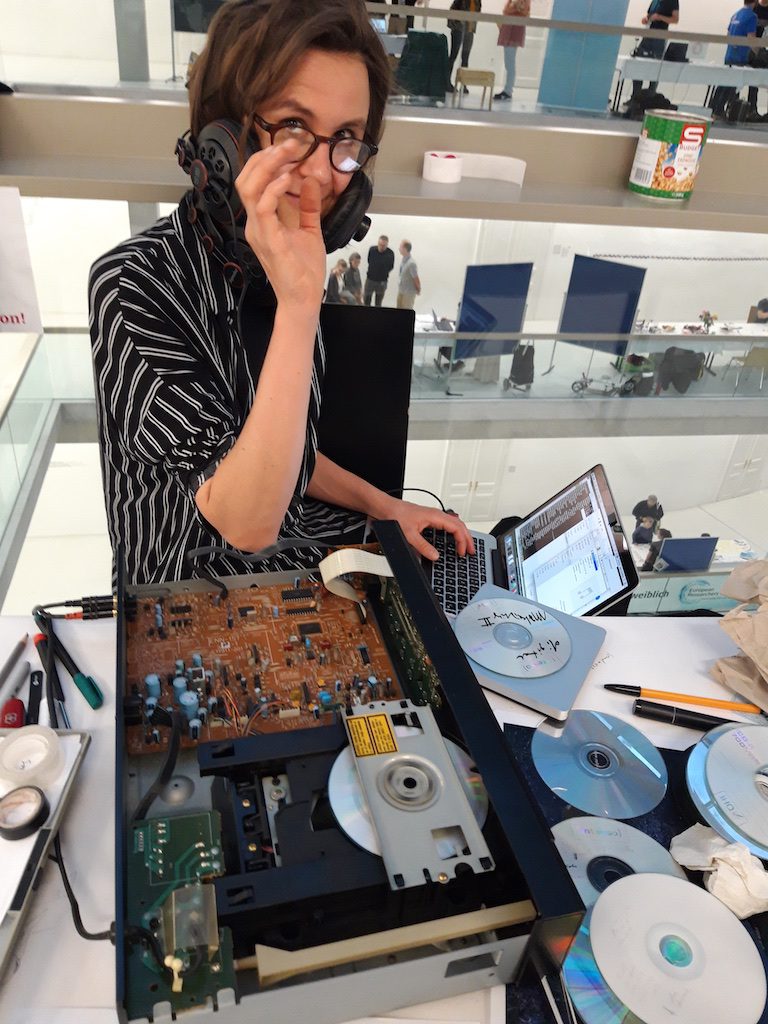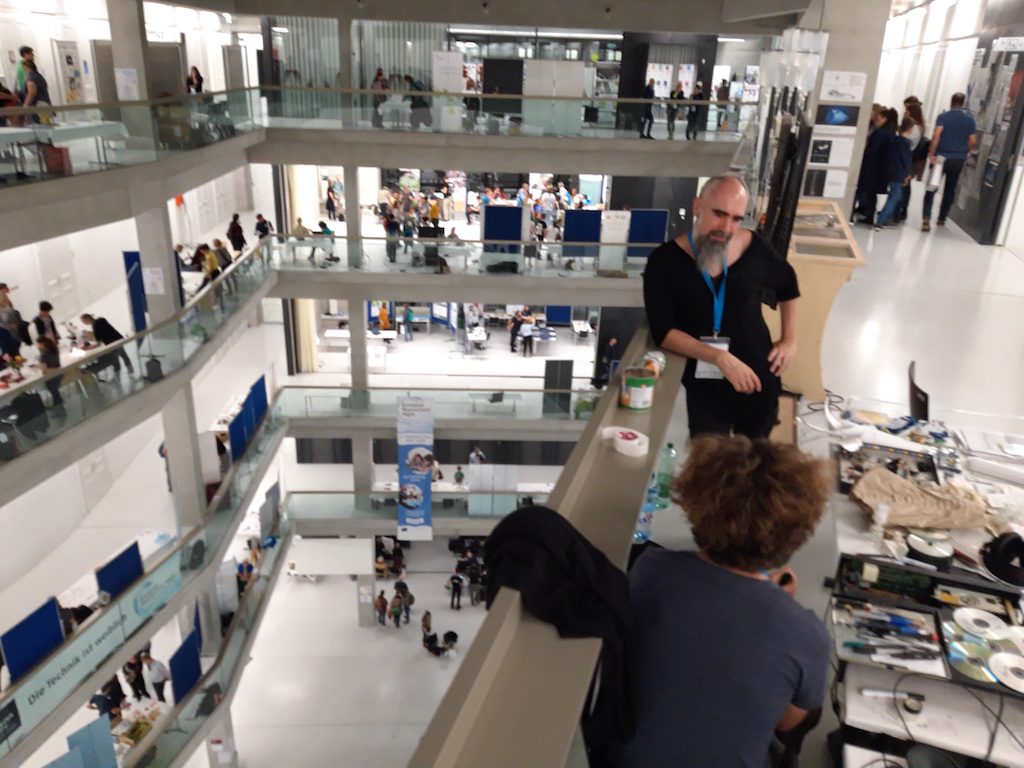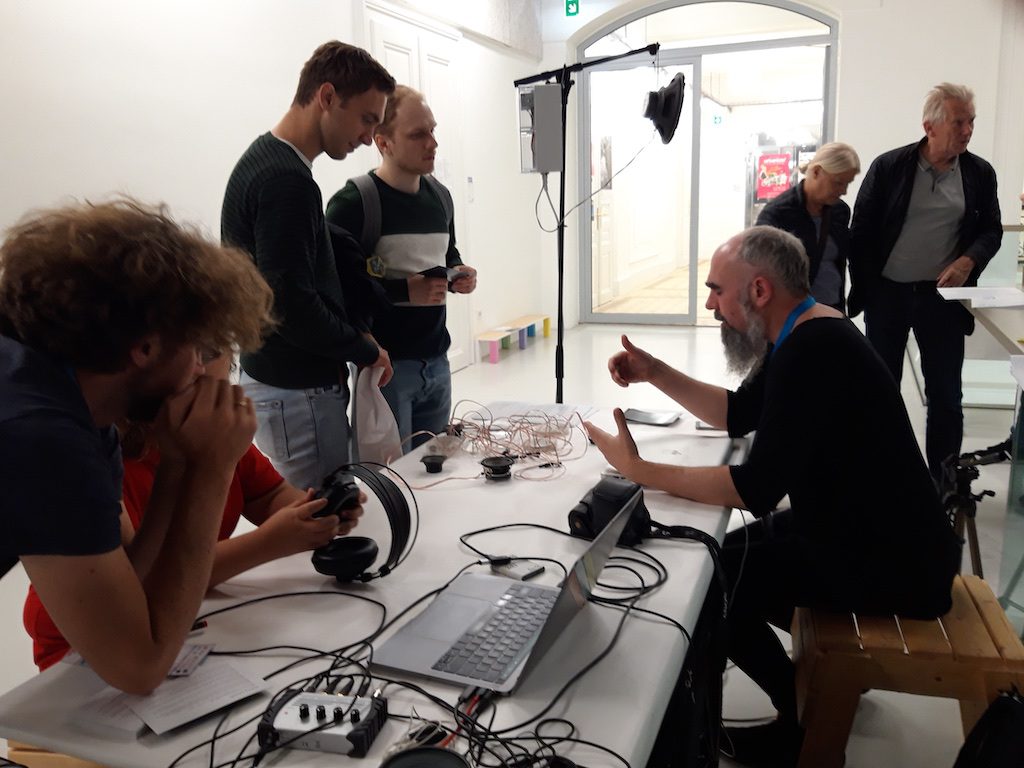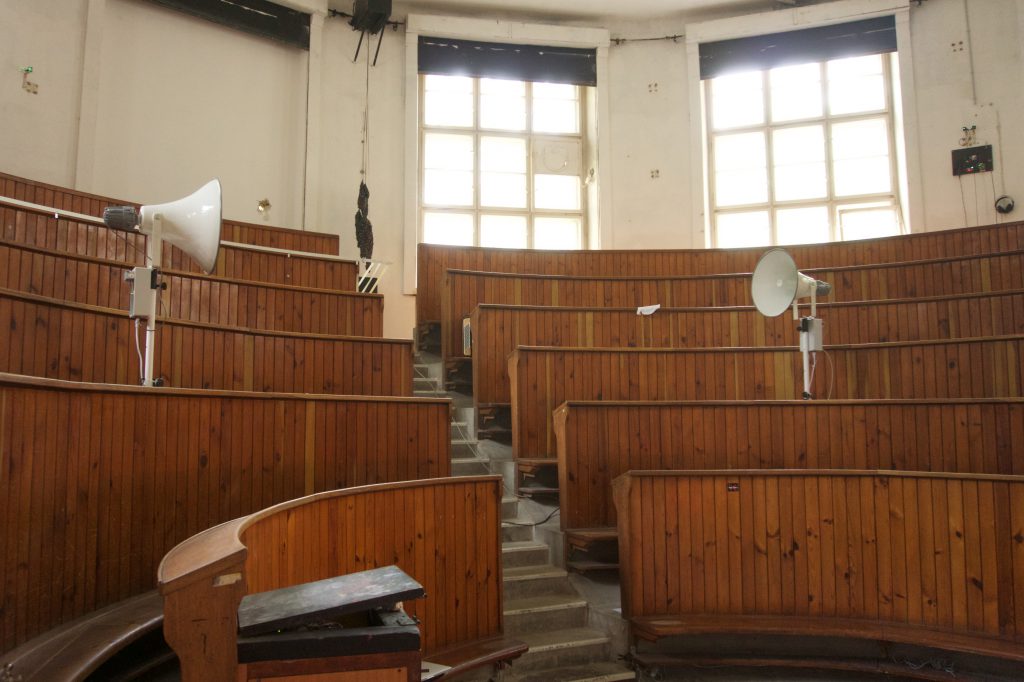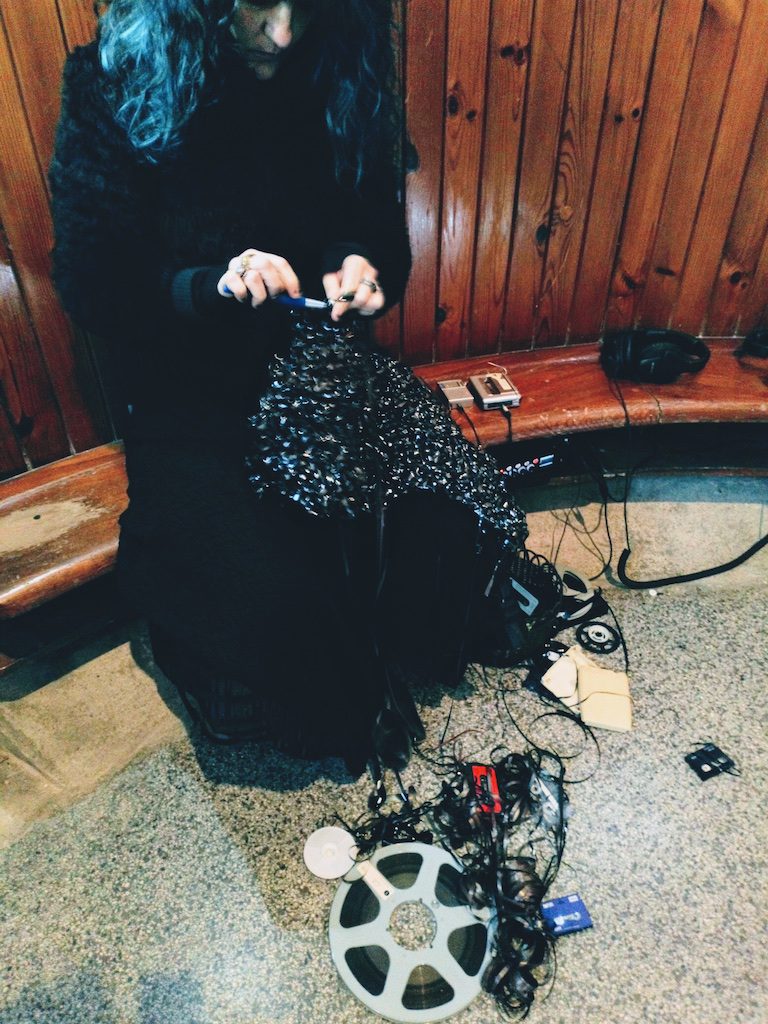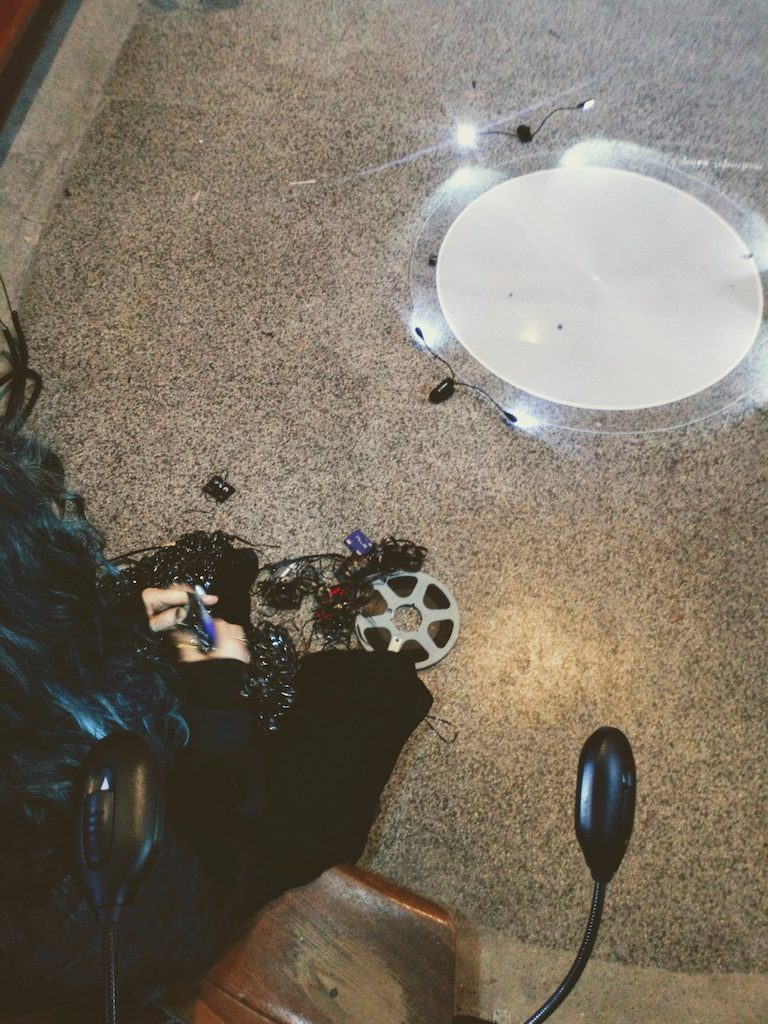Search Results for: thomas grill
Performance at Sound Campus, Ars Electronica Festival Linz, September 11
Thomas Grill, Till Bovermann and Kathrin Hunze will perform “merge and dissolve”, an audiovisual performance concept in the SOUND CAMPUS program, part of the Ars Electronica Festival 2020.
This performance involves three interactants, two predominantly working in the audio domain (Thomas Grill and Till Bovermann) and one focusing on a visual counterpart (Kathrin Hunze). We generate and exchange streams of 1-bit audio, a signal representation with properties of both the digital and analog domain that we have already been investigating in the artistic research project “Rotting sounds – Embracing the temporal deterioration of digital audio” (FWF PEEK AR445-G24). With simple switchboard matrix devices, we channel such bit streams between the individual performers and through simple processing modules, like delays, logical operators, etc., generating feedback and interferences on the way. These phenomena are made audible and are also mirrored by a visual representation of particle streams, forming directed jets and point cloud aggregations.
11. September 2020 – 20:10 – 20:35
Hauptplatz 6, Glashörsaal D (H6.DG.04)
4020 Linz, Austria
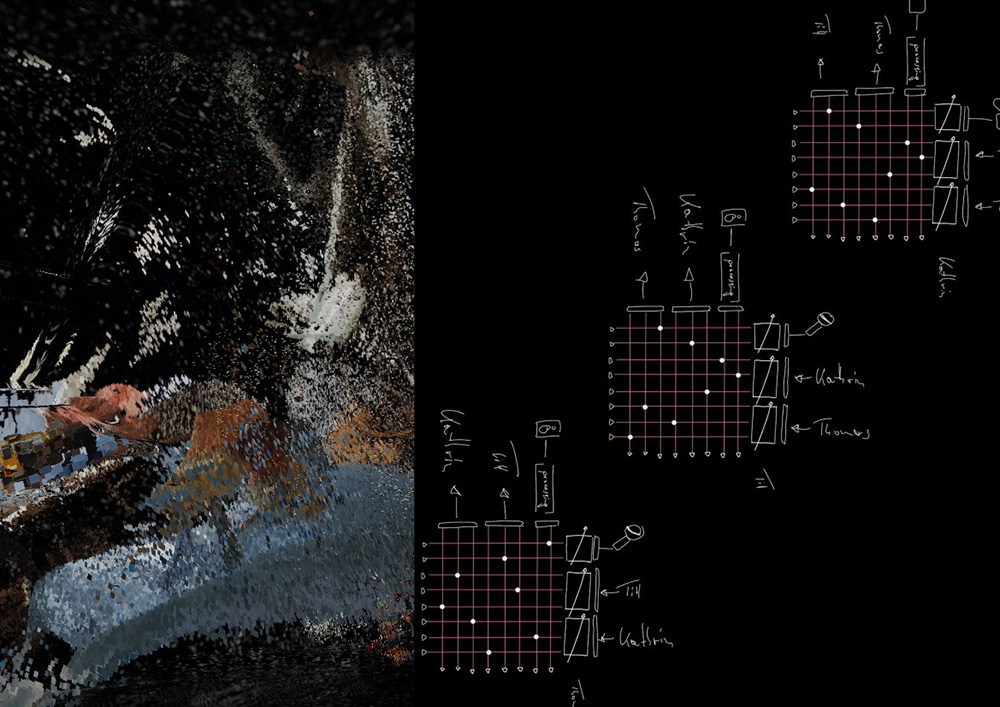
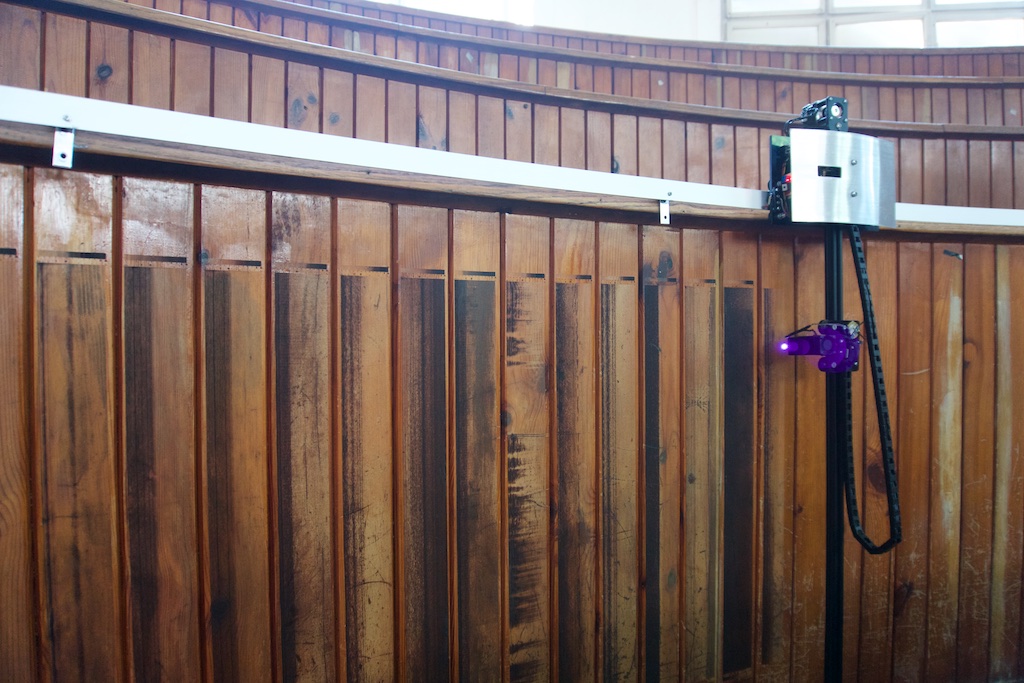
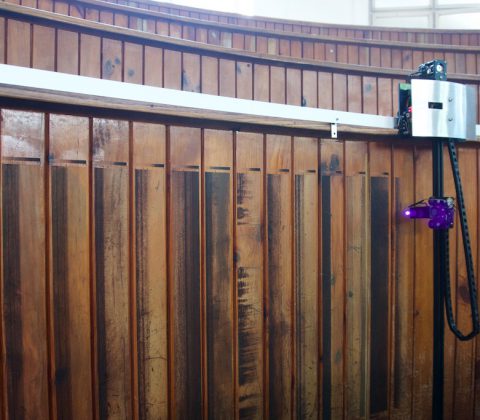
Inscriptions from the archive
by Hannes Köcher and Thomas Grill, 2020
commissioned by rotting sounds
Sound archive, wooden seat rows, laser engraving machine
The archive of the auditorium of rotting sounds is continuously growing. Every hour, each of the sounding exhibits in the space leaves one minute of audio data in the archive, already amounting to tens of thousands of sound items.
This installation inscribes these sounds into the exhibition space itself, laser engraving time-frequency representations into the wooden seat rows. Each of the about 1000 seatback planks can carry 10 seconds of sound which – in principle – can be reconstructed at a later time.
The machine works autonomously, taking a few hours per plank. By the end of the year 2021, all the seat rows will be filled with a representative random selection of archived sound items.
do trans-Art_44 performance, February 13
Rotting sounds will be guest at the trans-Art series organized by Astrid Rieder. Thomas Grill will perform “musical materials”, in this case a worn concert zither explored with digital music signals.
trans-Art is a real-time dialogue between two or more artists. It breaks through conventional boundaries between different genres of art and enables a deeper understanding and reception of abstract art on several layers. (Astrid Rieder)
Thursday, February 13th at 7:30pm
studio Bundesstraße 37, in Wals-Siezenheim.
Art’s Birthday 2020, January 17, ORF Kunstradio
Rotting sounds (Thomas Grill, Almut Schilling, Tobias Leibetseder) take part in this year’s celebration of Art’s Birthday with a CD audio production line. We will live generate digital audio on compact discs by mechanical and chemical means, and finally subject them to a testing procedure.
Art’s Birthday 2020 – 1,000,057 Years of Art
In 1963 the French Fluxus artist, Robert Filliou, declared January 17 to be the 1,000,000th birthday of art which for some decades now has been celebrated worldwide. As in the previous years, in 2020 artists all over the world will organise a networked birthday party for art.
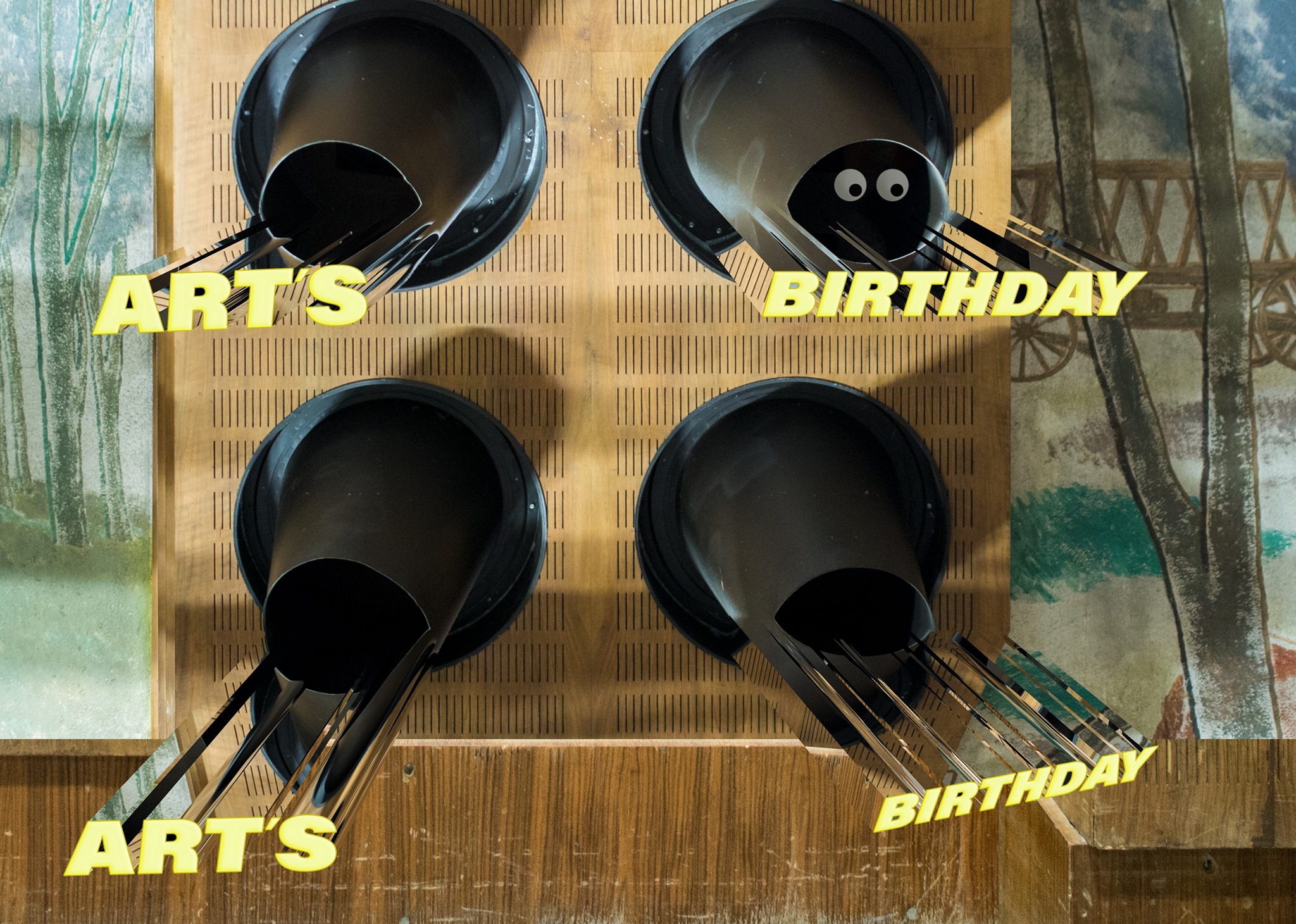
Performances and gifts by:
GOGO! von Michael Baumgartner mit Omid Darvish und Reza Tavakoli
Heavy Mental Superhereos (Runar Magnusson, Josef Trattner und Esther Vörösmarty)
Ars_Poetica (Magdalena Hahnkamper und Bernd Satzinger)
Heya Netzwerk (Nour Sokhon in Berlin, Jilliene Sellner in Wien, Yara Mekawei in Kairo und Zeynep Ayşe Hatipoğlu in Istanbul)
Instant Places (Laura Kavanaugh und Ian Birse)
Rotting Sounds
Milan Mijalkovic von Makedonien
Rdeča Raketa (Maja Osojnik und Matija Schellander) mit Patrick K.-H.
Rojin Sharafi
Susanne Schuda
Presentation: Frida Kahlo (Rosanna Ruo)
On site: 08pm – 11pm,
RadioKulturhaus Wien, Argentinierstrasse 30a, A-1040 Vienna.
On line: kunstradio.at, http://oe1.orf.at/konsole, artsbirthday.net, http://artsbirthday.ebu.ch
On air: Ö1 Radiokunst – Kunstradio live 10:08pm – 01.00am
Sound:Frame conference, January 16, AIL Vienna
Thomas Grill was invited to share a panel at the Sound:Frame conference with Arthur Flexer (OFAI) to discuss the post digital era within their topic “Sound Art and Curating – Machine Learning and Limits of Control”.
Navigating the Postdigital
Where do you want to go? Enter starting point. Enter destination. Get directions.
Eine einfache Gleichung. Doch was, wenn man auf diese simplen Fragen keine Antwort weiß, weil die Parameter unbestimmt sind? Wo stehe ich eigentlich? Wo will ich hin?
Das Postdigitale verweigert sich dem linearen Denken. Es ist wild, vernetzt, assoziativ, sackgassenintensiv. Gleichzeitig ermöglicht es eine Neuauslotung von Kategorien und Prioritäten und schafft damit Raum. Gemeinsam mit Künstlerinnen und Wissenschaftlerinnen diskutieren wir, welche Erkenntnisse der interdisziplinäre Austausch von Kunst und Wissenschaft bringt, wenn es darum geht, mögliche Parameter für die Gestaltung unserer Gesellschaft zu finden.
Artistic Research Konferenz
Duos aus Kunst und Wissenschaft diskutieren über postdigitale Tendenzen, Machine Learning, Hybrid Art, das Wood Wide Web und mögliche Navigationsstrategien.
Konferenz: 16.01.20, 10–20:00
Ausstellung: 15.01, 10–20:00, 17.01., 12-17:00
Führung & Performance: 17.01.20, 13:30–15:00
ANGEWANDTE INNOVATION LABORATORY, Franz-Josefs-Kai 3, 1010 Wien, Österreich
Materialities symposium, Sussex University, Brighton, December 4+5
Thomas Grill and Till Bovermann will represent activities of the Rotting Sounds project within a fast-paced symposium on the subject of materialities in music making.
Duo Performance @ the Rosehill Arts: December 4, 9pm
Thomas Grill – Musical material
Probing of fragments of deceased instruments by use of digital sound. Sounding the materials, shapes, resonances – tracing remnants of a musical life.
Till Bovermann – Buffer manipulations
Probing and fragmentation of deceased digital sound. Sounding the materials, shapes, resonances – tracing remnants of a brief ephemerality.
Masterclass and Round table/panel discussion: December 5, 10-13h
Notions of materiality and influence on practice
Topics relating to notions of materiality and influence on practice are discussed by a panel of academics/composers and performers. This promises to be a lively debate relating to media archeology, liveness and audience perspective.
Participants include Evelyn Ficarra, Tom Richards, Till Bovermann, Thomas Grill and others.
“Fragments” performance evening
Some impressions of the “Fragments” performance evening that took place on October 2, 2019 at the Auditorium for Rotting Sounds, featuring Tobias Leibetseder, Angélica Castelló, Elisabeth Flunger and Thomas Grill.
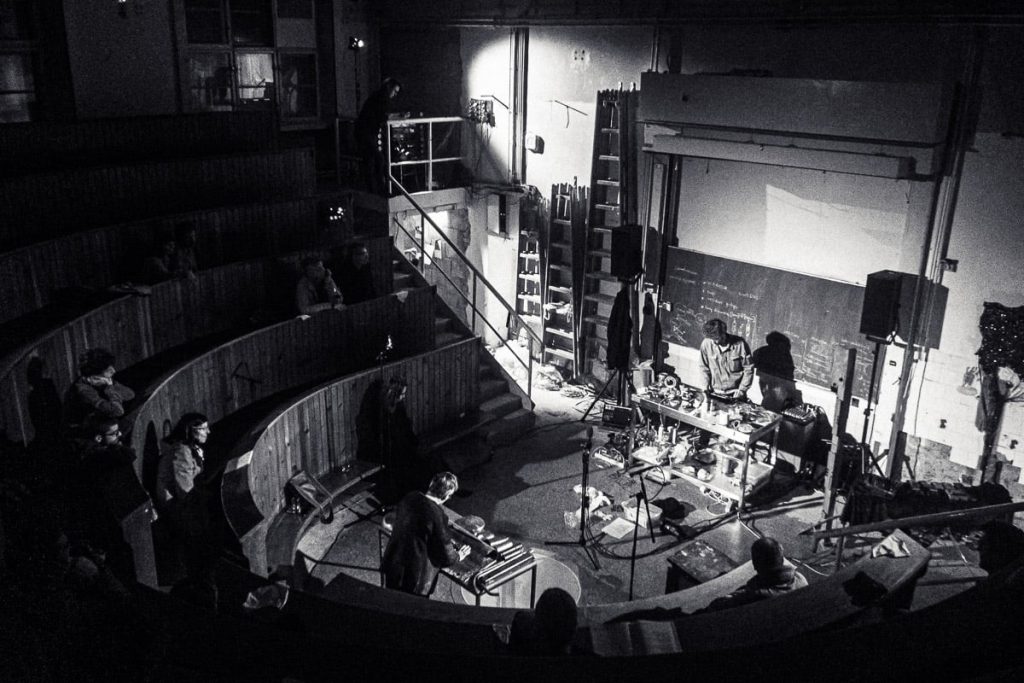
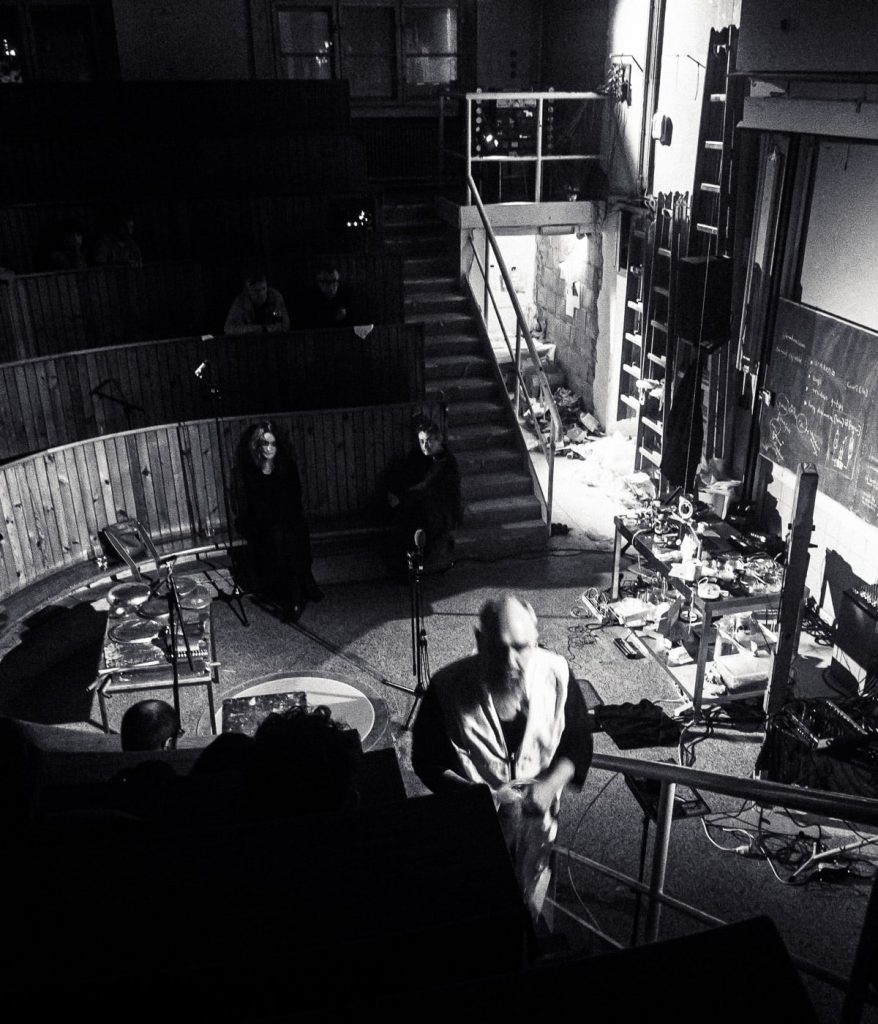
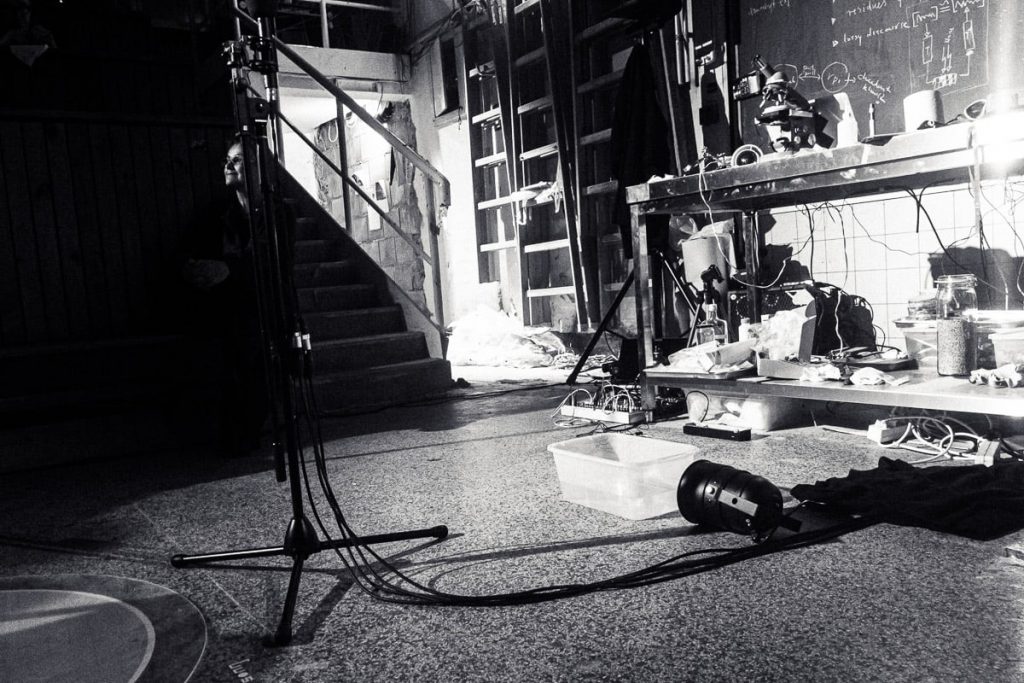
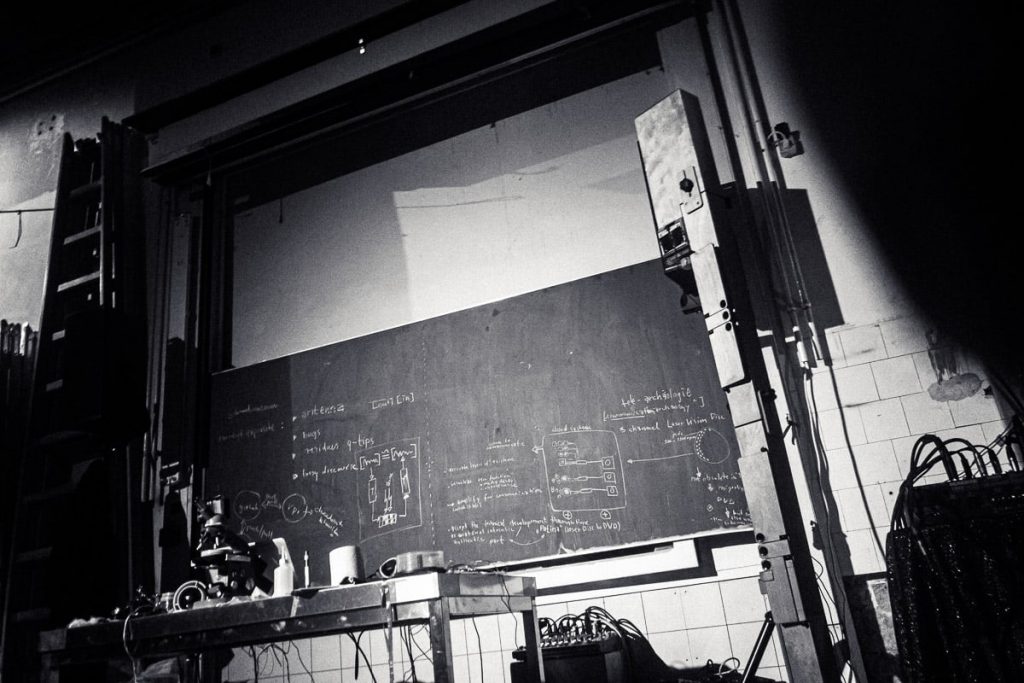
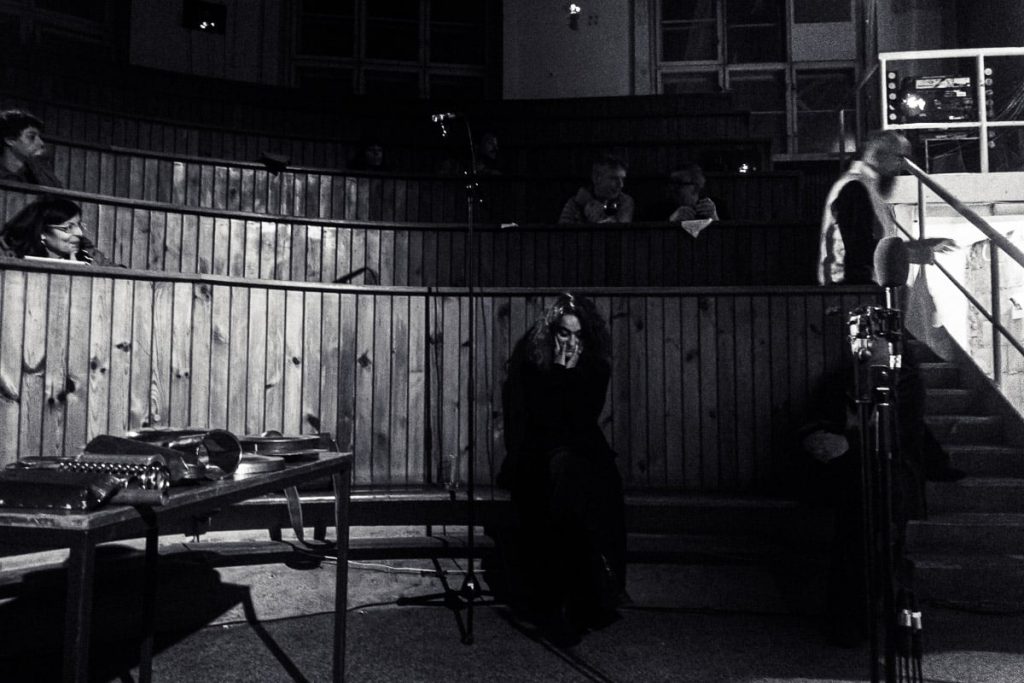
European Researchers’ Night, September 27
We took part in this year’s European Researchers’ Night, showcasing a broad range of research projects at the University of Applied Arts Vienna.
From our ongoing research, we presented a couple of exemplary positions, such as Tobias Leibetseder’s “Fragments“, Almut Schilling’s and Till Bovermann’s “CD-R(ot)“, a part of Almut’s “The Carrier” installation, Till’s take on “Data Forensics”, as well as Thomas Grill’s “Mutual understanding” and “Reference Tone“.
Mutual Understanding
by Thomas Grill, 2019
Horn loudspeakers, audio electronics, speech synthesis, machine learning
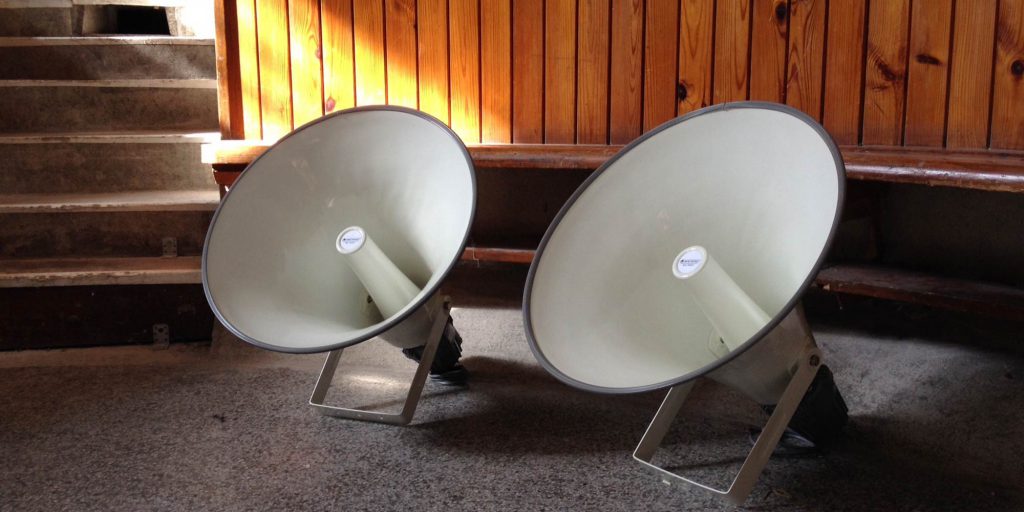
We are witnessing two acoustic agents incarnated by large horn loudspeakers as they incessantly exchange acoustic codes. Based on models of human vocalization, they develop their vocabulary independently from a natural language. In their ongoing discourse, they follow a common goal: to maximize the beauty of their own vocal expression. The concept relates to an experiment by the Facebook AI team in which chat bots were given the task of optimizing their language for negotiation efficiency. The language soon became impossible for human eavesdroppers to interpret. Mutual Understanding expands on this experiment, treating it as an aesthetic problem, investigating the possibility space of language and its technical measurability.
The installation has originally been created for the AI x Music exhibition of the Ars Electronica 2019 festival and is currently exhibited (for the whole year 2021) at the ESC Medienkunstlabor in Graz, Austria.
Performances at the Auditorium: “Fragments”, October 2
The performance evening will revolve around Tobias Leibetseder‘s processual and constantly changing sculpture “Fragments“. It is in permanent development and consists of artifacts of the Rotting sounds research process. Waste, things collected, things stored and put aside, texts, pictures, data, sounds etc. are the basis of the shape-changing work. Object or exhibition, museum or archive, collection or documentation are moments of intrinsic research and decomposition, accompanying the process and resting in the distant but immediate eye of the observer.
Tobias Leibetseder‘s performance Transformation 1 is a transformation step and insight into the process of fragments. Artifacts as materials and sounds are transformed into new shapes and synthesized in a performative and concert act.
Angélica Castelló will present a performance based on recordings of her performance “Magnetic litany” from the opening evening of the Auditorium of Rotting sounds on March 29, 2019. It is connected to the permanently exhibited object “Magnetic Room“.
Elisabeth Flunger and Thomas Grill will jointly improvise on material and digital scrap. Everything seemingly valuable today will eventually transform into scraps. We take it as an aesthetic option.
October 2, 2019 19:00
Auditorium of Rotting sounds (Altes Auditorium)
University of Music and Performing Arts Vienna
Anton-von-Webern-Platz 1, 1030 Wien
As the audience will have to be limited, admission is on personal registration only.
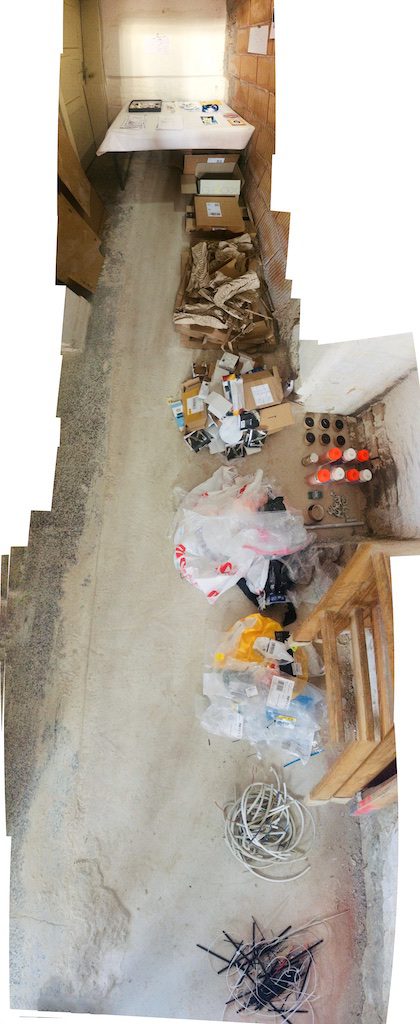
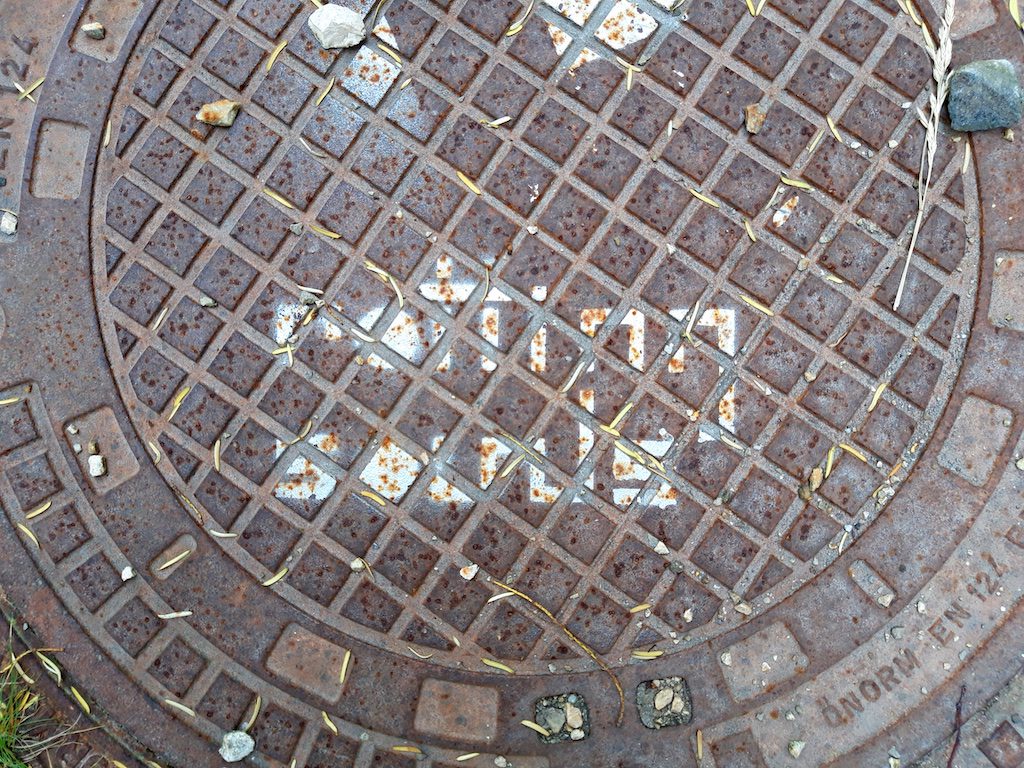
The pieces Magnetic litany 1 and 2 by Angélica Castelló have been made possible by the support of El Sistema Nacional de Creadores de Arte (FONCA).

